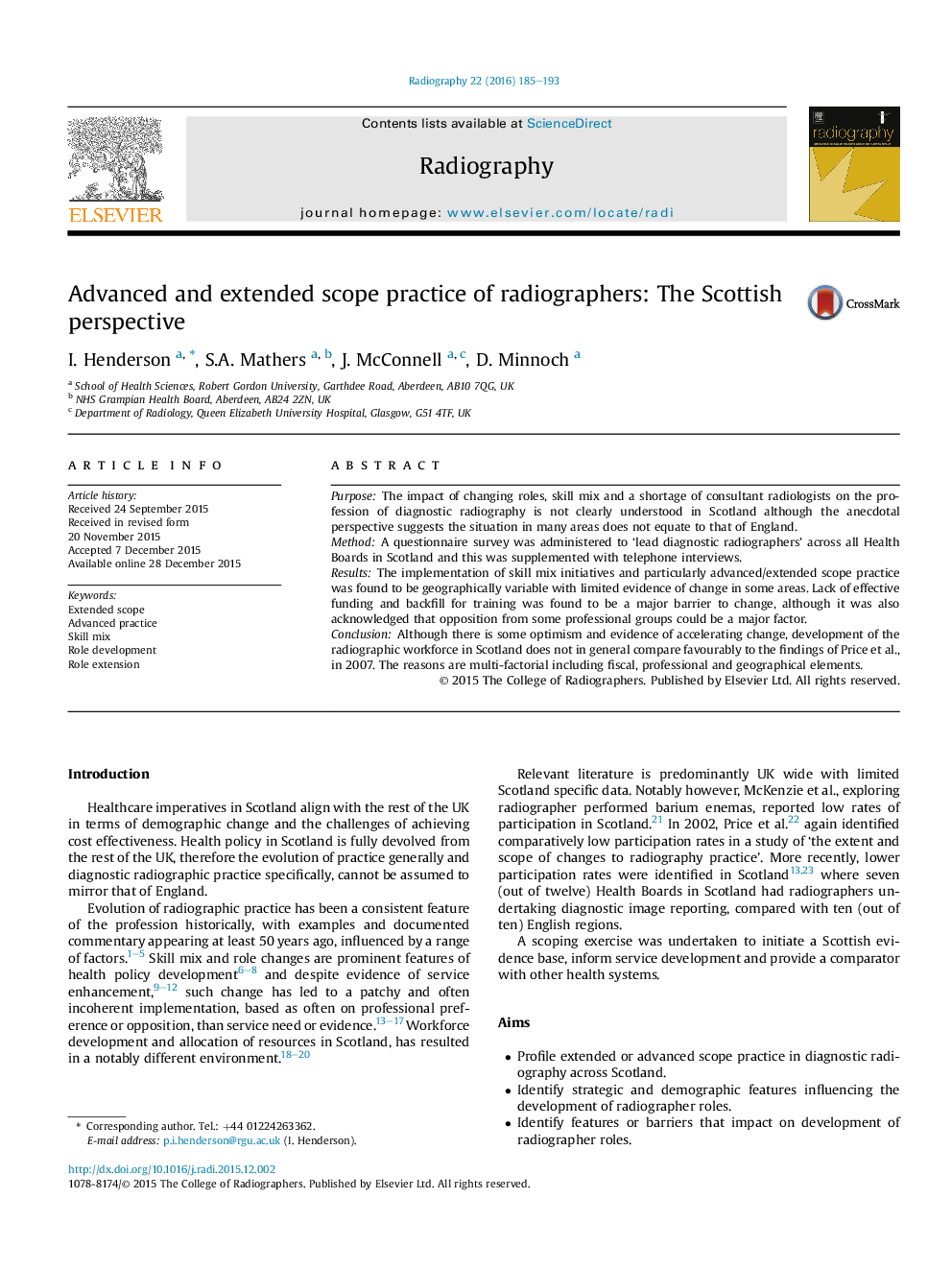| Article ID | Journal | Published Year | Pages | File Type |
|---|---|---|---|---|
| 2734686 | Radiography | 2016 | 9 Pages |
•Implementation of extended scope practice is geographically inconsistent.•AfC banding of radiographers in extended scope roles is inconsistent.•Funding and backfill for training is a recognised difficulty for many managers.•Professional opposition, primarily from radiologists is a barrier to implementation.•Extended scope roles make a notable contribution to enhanced outcomes.
PurposeThe impact of changing roles, skill mix and a shortage of consultant radiologists on the profession of diagnostic radiography is not clearly understood in Scotland although the anecdotal perspective suggests the situation in many areas does not equate to that of England.MethodA questionnaire survey was administered to ‘lead diagnostic radiographers’ across all Health Boards in Scotland and this was supplemented with telephone interviews.ResultsThe implementation of skill mix initiatives and particularly advanced/extended scope practice was found to be geographically variable with limited evidence of change in some areas. Lack of effective funding and backfill for training was found to be a major barrier to change, although it was also acknowledged that opposition from some professional groups could be a major factor.ConclusionAlthough there is some optimism and evidence of accelerating change, development of the radiographic workforce in Scotland does not in general compare favourably to the findings of Price et al., in 2007. The reasons are multi-factorial including fiscal, professional and geographical elements.
